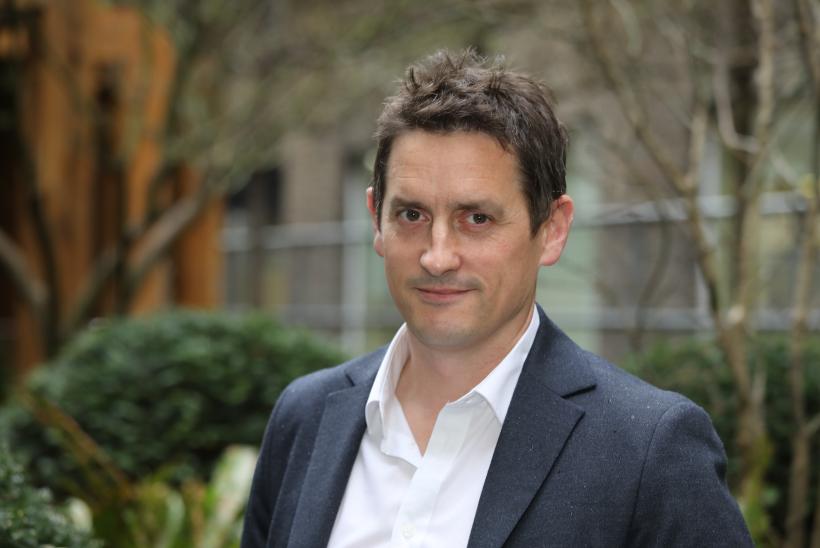GOSH传染疾病专家对于小儿多系统炎症综合征(PMIS)的讨论
Dr Louis Grandjean, Infectious Diseases Consultant at Great Ormond Street Hospital (GOSH), discusses PIMS ahead of his presentation on the topic at the 15th SEHA International Pediatric Conference (SEHA) between the 18-20th March. The SEHA conference, usually held in Abu Dhabi, is taking place virtually this year. GOSH will be exhibiting at the conference, with a virtual stand and three speakers, including Dr Grandjean.
What is PIMS or PIMS-TS?
Paediatric multisystem inflammatory syndrome (PIMS-TS) is a multisystem inflammatory disease temporally associated with SARS-CoV-2 infection. This condition is also called MIS-C or PIMS. It is a novel condition that was first reported in April 2020.
How does it affect children?
Children with PIMS-TS often present with fevers, hypotension, a rash, and a low lymphocyte count. The fevers usually last for more than 3 days, and there may be other associated symptoms including headache, stomach-ache, neck pain, swollen hands or feet and weakness or fatigue.
Children may need cardiac and intensive care support. Children usually have high blood inflammatory markers (e.g. raised C-reactive protein). Current treatments include anti-inflammatory drugs.
Thankfully with the right treatment, the outcomes for children who have PIMS are good and the vast majority do very well.
Is there a treatment or cure?
Almost all of patients at GOSH who have had PIMS (and have consented) are enrolled into The Recovery Trial to test the effectiveness of the drugs that we have theorised work best.
Observationally we have noticed that steroids and other anti-inflammatory drugs such as tocilizumab appear to switch off the fevers and the disease process although more studies are required to clarify this and determine which anti-inflammatory treatment is preferred.
What should a parent do if they are concerned their child may have PIMS?
The best thing to do if you are worried about your child and they look unwell, and you suspect they may have PIMS, is go to liaise with your local health services; GP, NHS 111 or hospital A&E department and seek advice. Identifying the condition and diagnosing it early can help prevent complications.
How many patients with PIMS have been treated at GOSH?
We have treated around 120 patients with PIMS since the beginning of the SARS-CoV-2 Pandemic. Due to this, we are one of the most experienced hospitals in the UK (based on case load) for treating the condition.
What has your experience of treating patients with PIMS at GOSH been like?
It’s been great to see our patients get through this condition and great to see their recovery. Sometimes it takes a while, but it’s been so encouraging to see so many have returned to full health.
This is the result of a massive group effort across hospital. It is worth mentioning the incredible effort and hours of dedication from the nursing staff in responding to this new situation. The nursing team (alongside the medical staff) have had the hardest task of ensuring that all the many complex health needs are met, diagnostic tests sent and medications administered correctly, especially in tricky circumstances.
It is important to say a big thank you to other teams as well, such as the AHPs including physiotherapists who have been involved in the rehabilitation work to help children move off the ICU and wards. The ICU specialists have also been great at rapidly responding to the influx of patients on the PICU.
It really has been a real group effort across the hospital to make sure that we have been able to rapidly respond to the ongoing situation and successfully treat patients with PIMS.
Why is it important to share your experiences at international conferences, such as SEHA?
From the beginning of this pandemic, it has been vitally important to keep in touch with colleagues around the world to ensure that we are providing the best possible treatment for our patients. I’ve been in touch with colleagues in Hong Kong and South America during this period, and it’s been evident that asking advice and sharing our experiences has been really useful.
SEHA will be a good opportunity for us to share our experiences on PIMS with health professionals in the UAE. If we can reduce the patients' hardship or help health care workers prepare in any way, that can only be a good thing.
Dr Grandjean will be presenting on COVID antibody responses and PIMS-TS (MISC) on Thursday 18th March at 16:30-16:55 (GST) at the SEHA conference.
Dr Louis Grandjean is a paediatric consultant in paediatric infectious diseases at GOSH and a Clinical Associate Professor and Honorary Consultant in Paediatric Infectious Diseases at University College London. He is also a Welcome Trust Post-Doctoral Fellow at Imperial College London, leading a research group in Peru focussed on understanding the transmission, diagnosis, prevention and control of infectious diseases.


